Greg Van Avermaet's Paris-Roubaix winning bike
A detailed look at the BMC Granfondo RBX
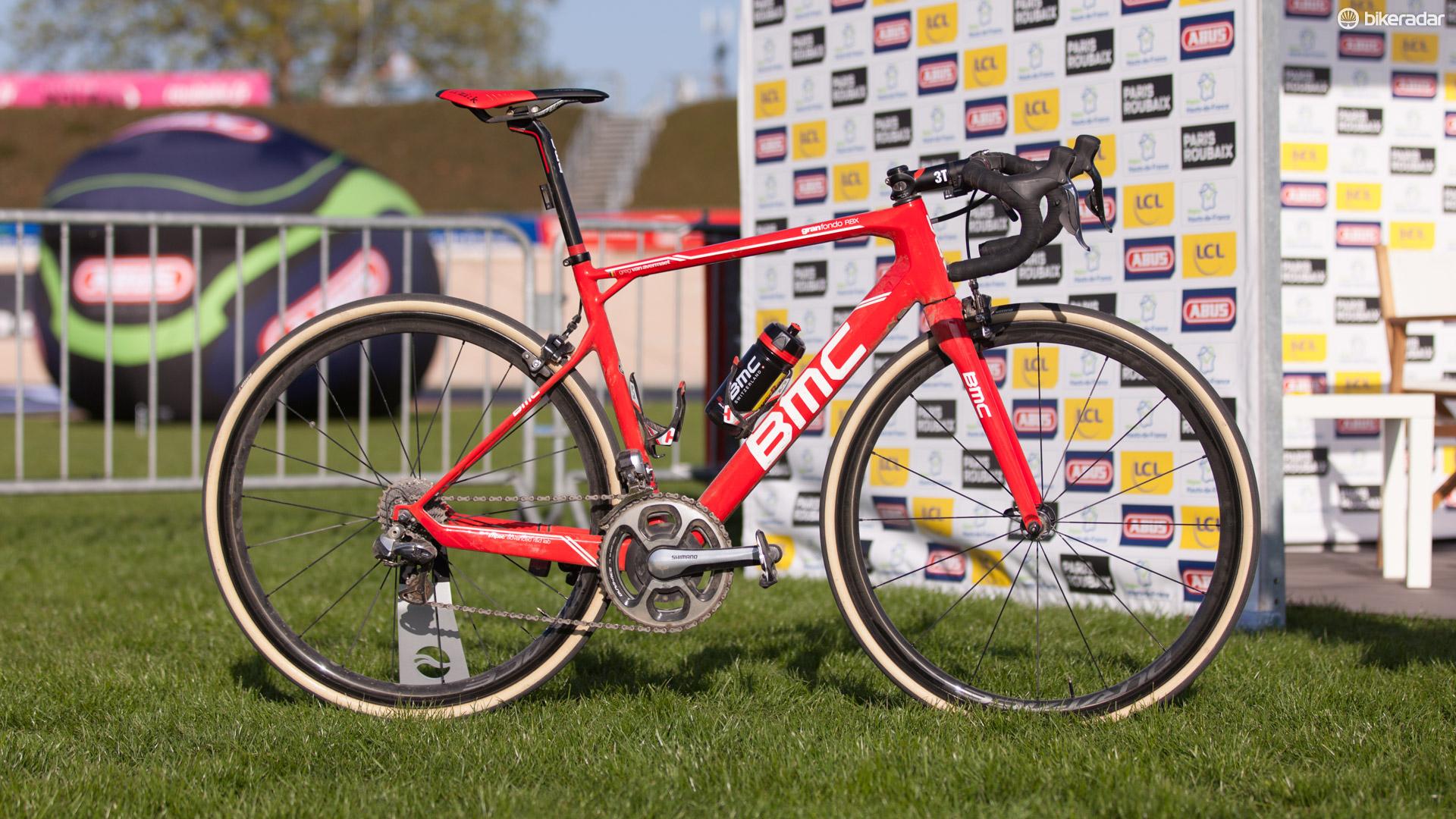
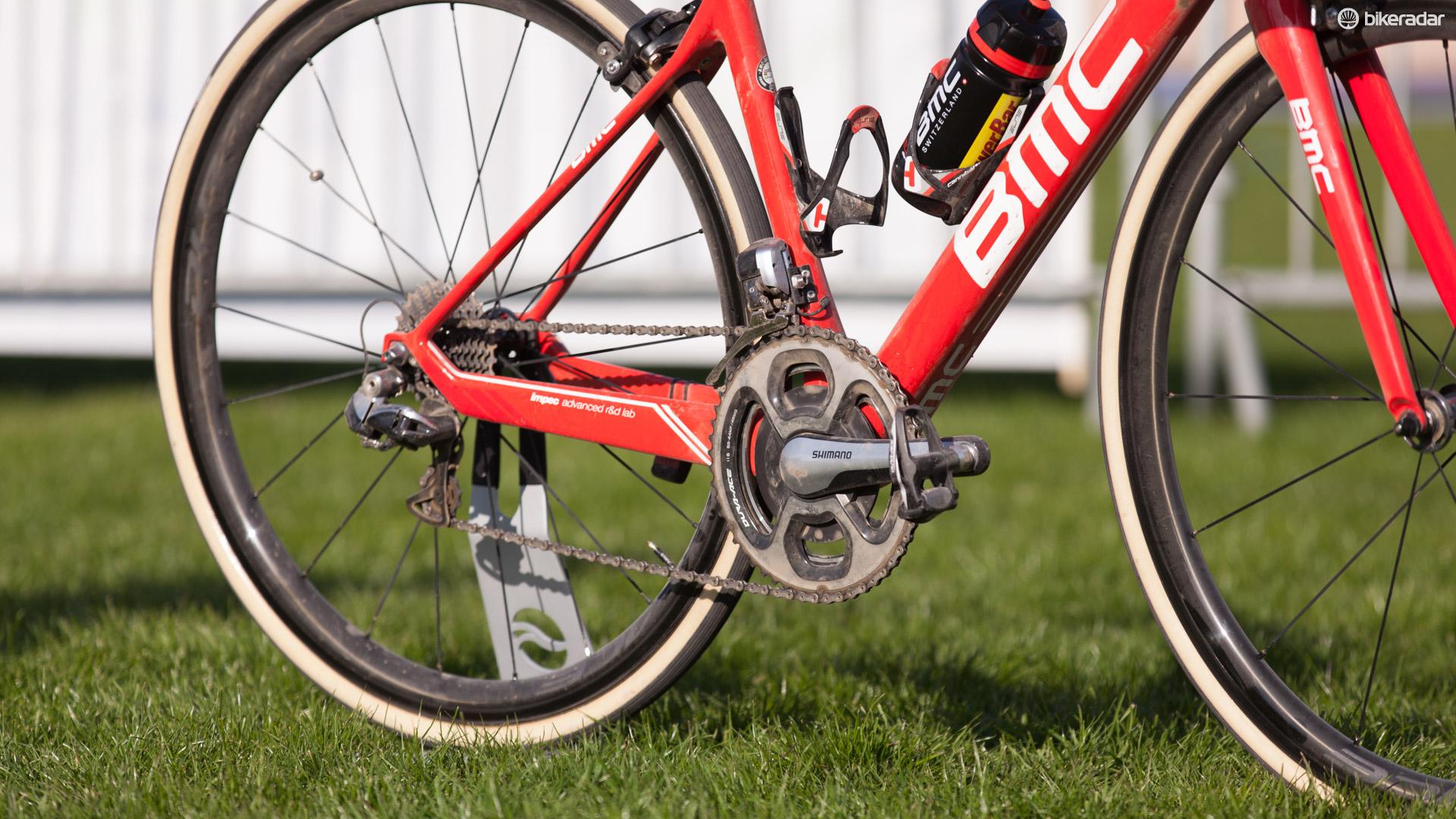
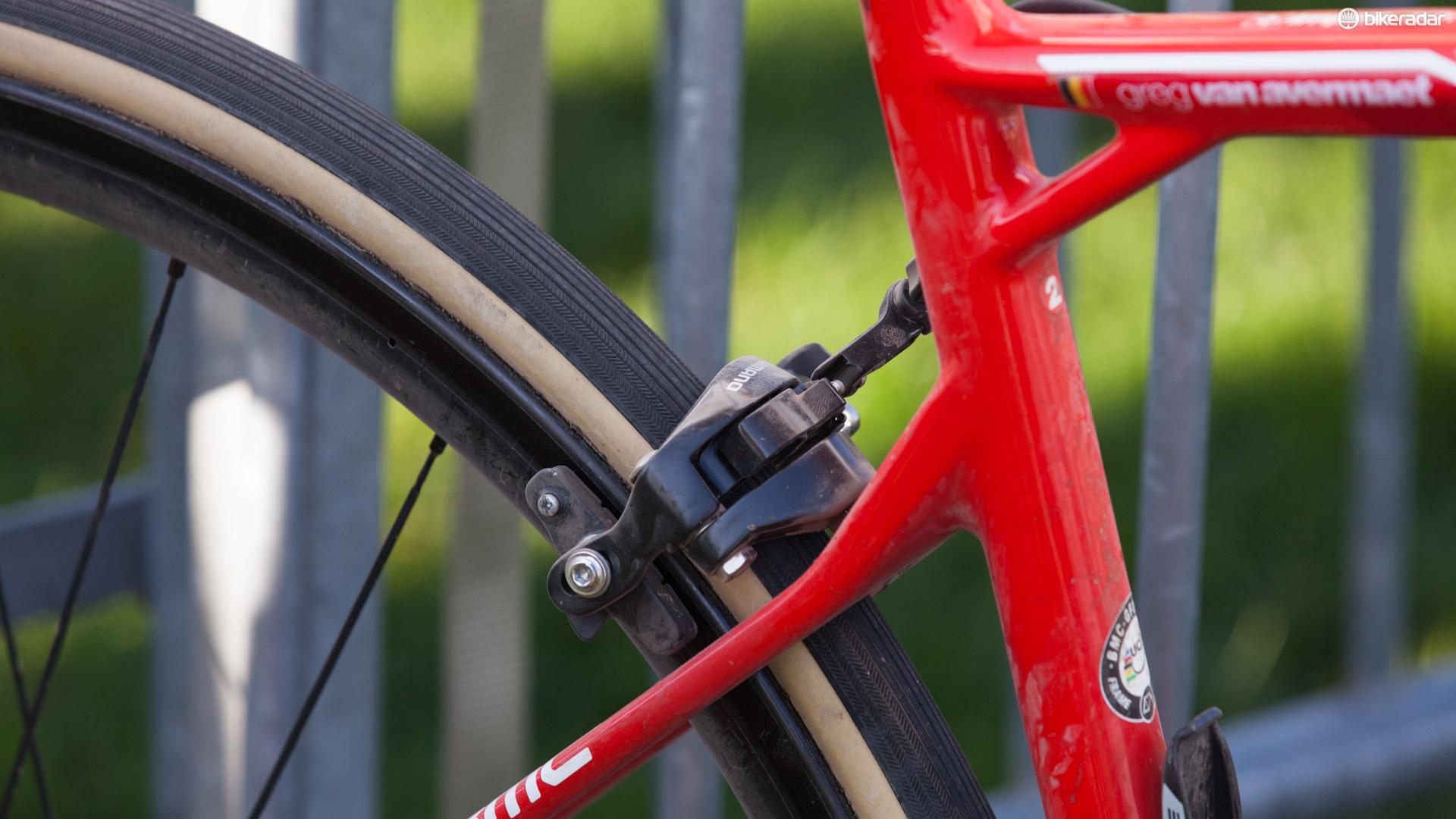
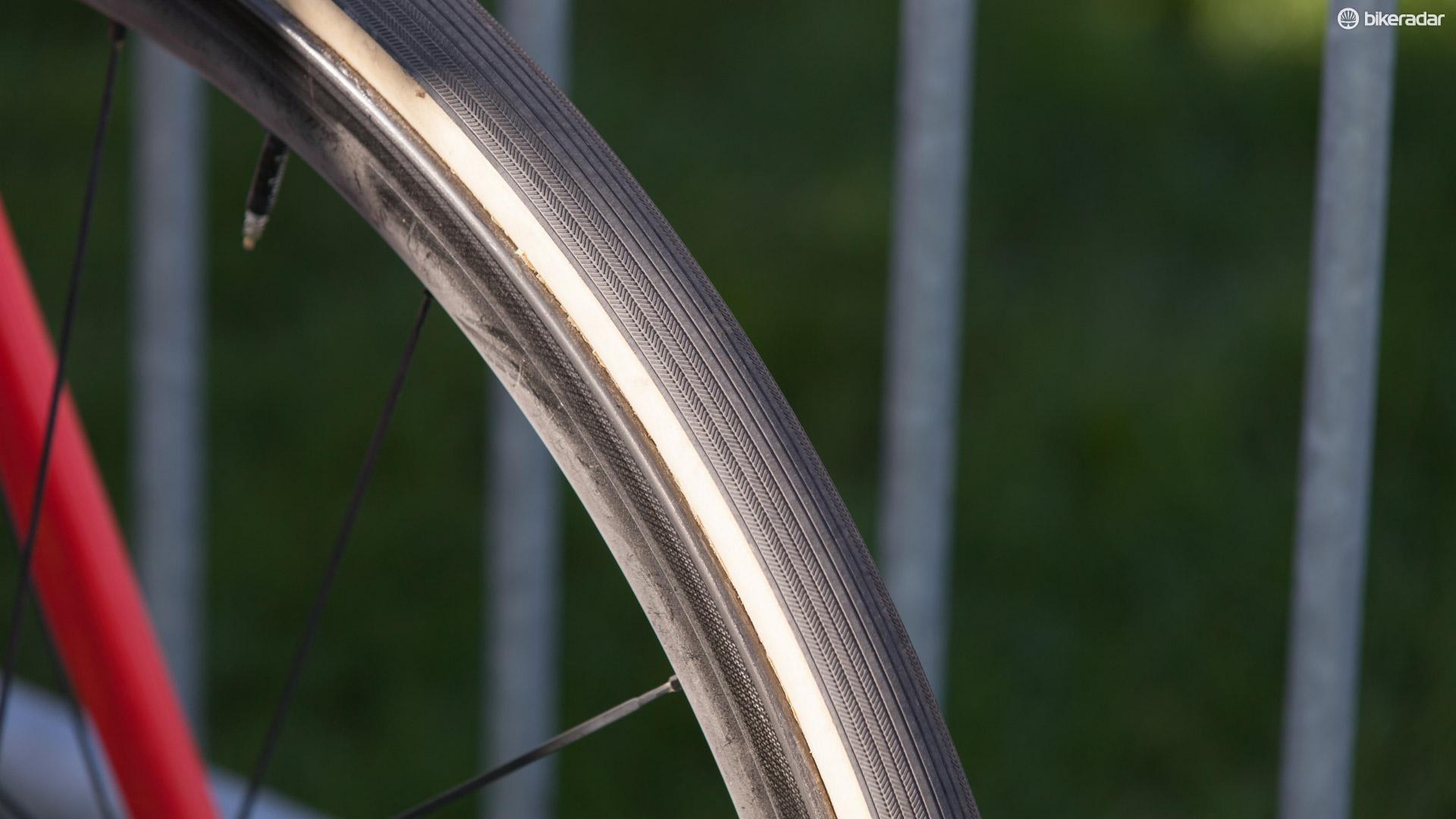
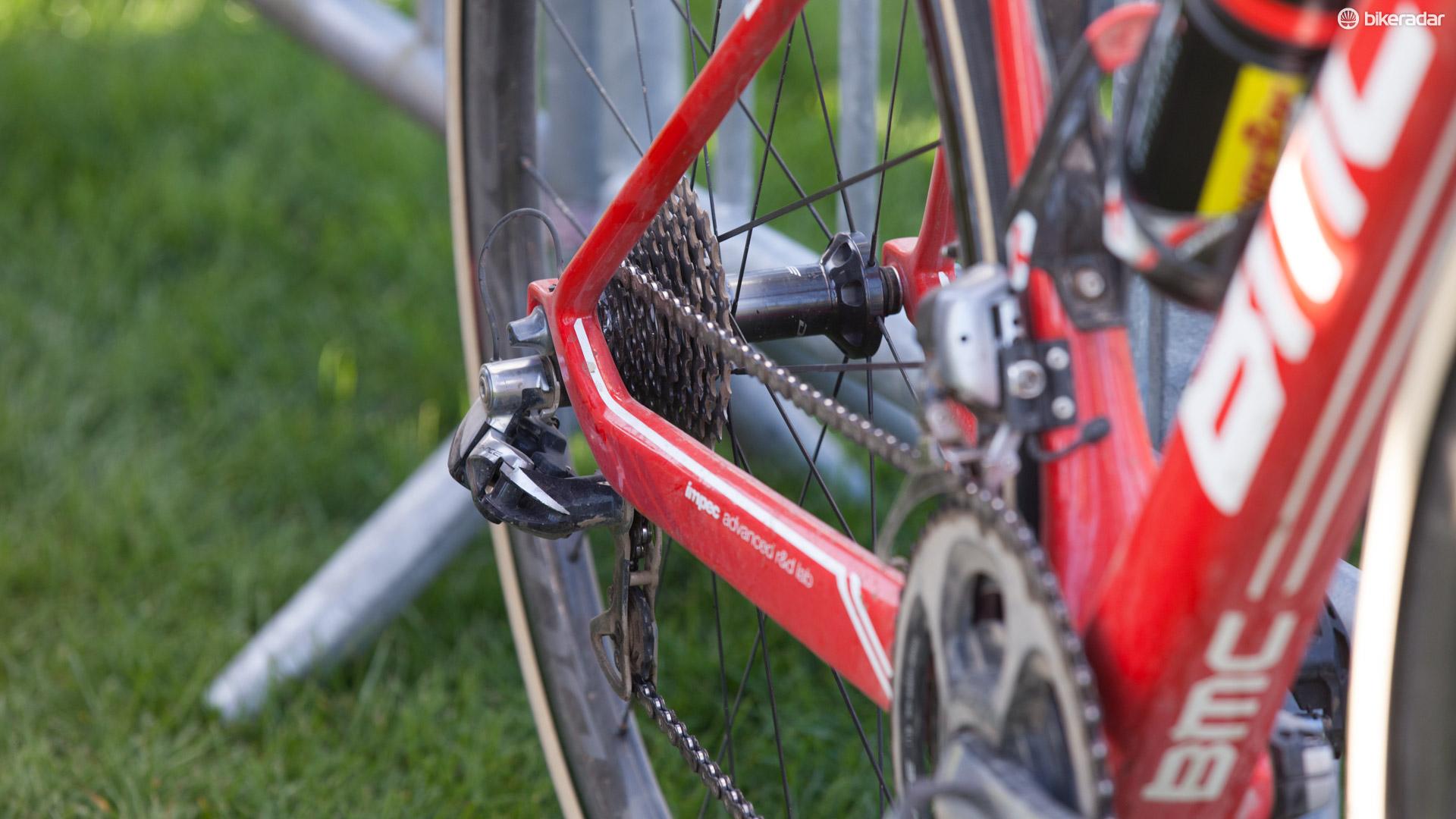
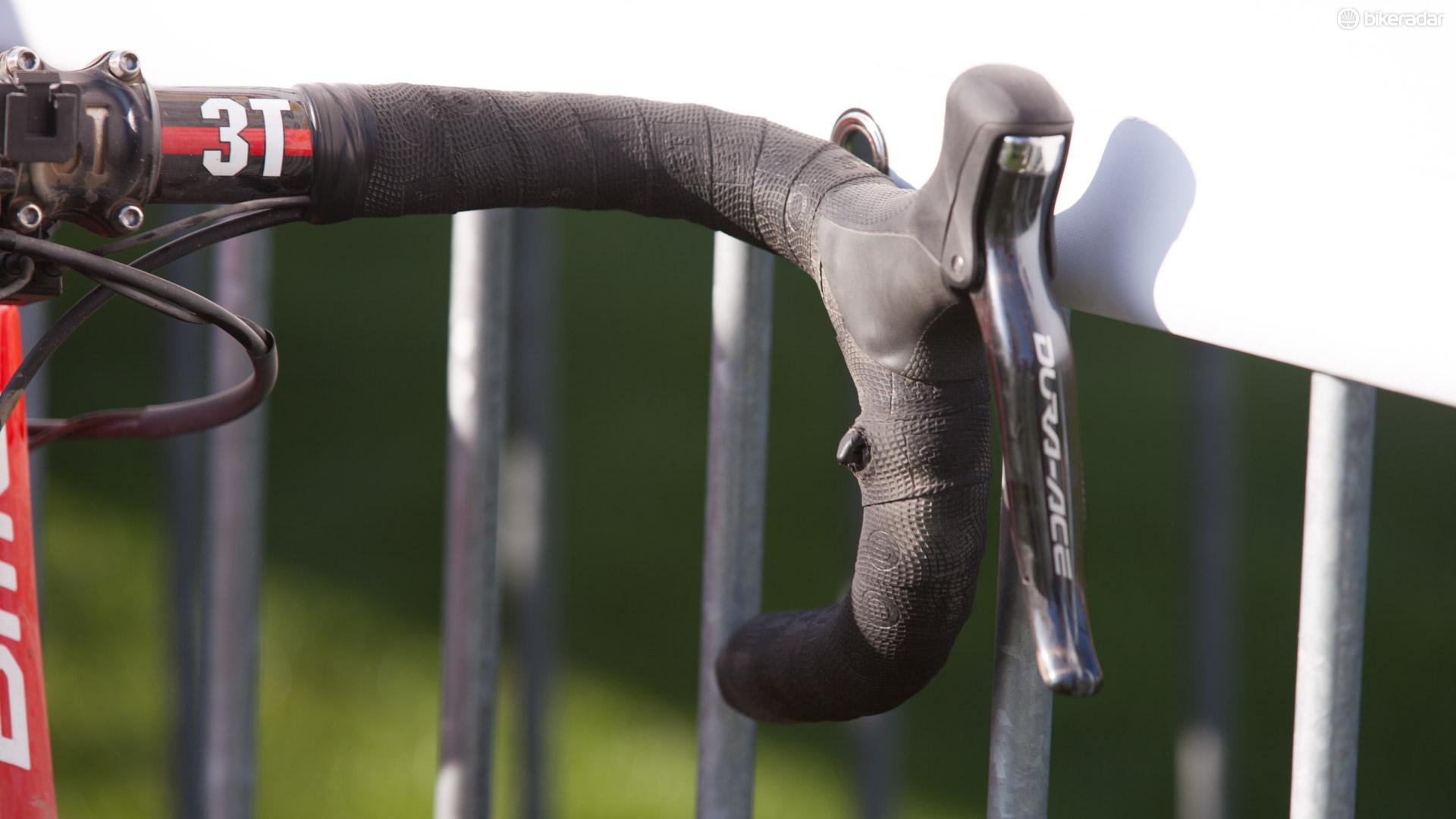
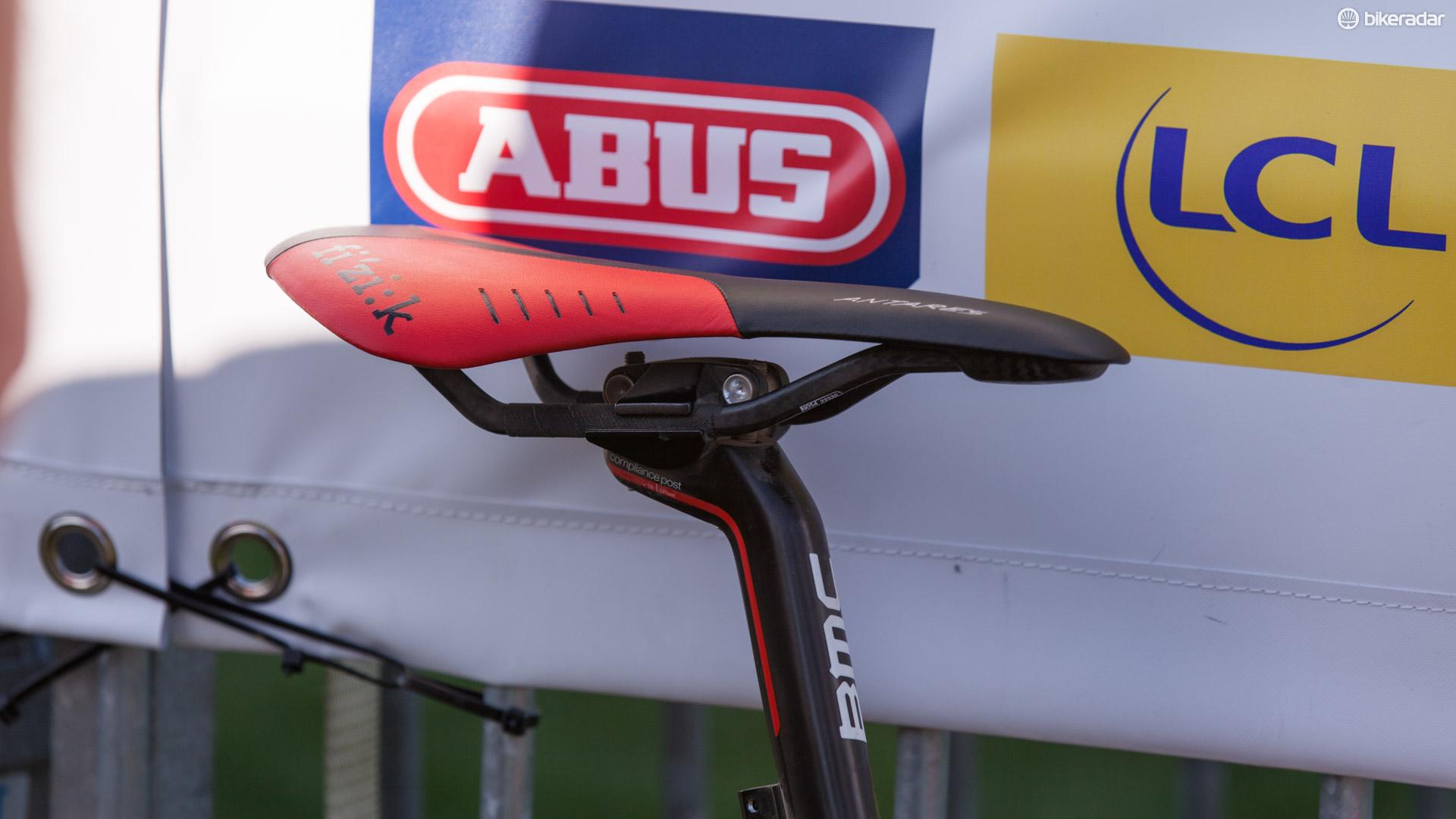
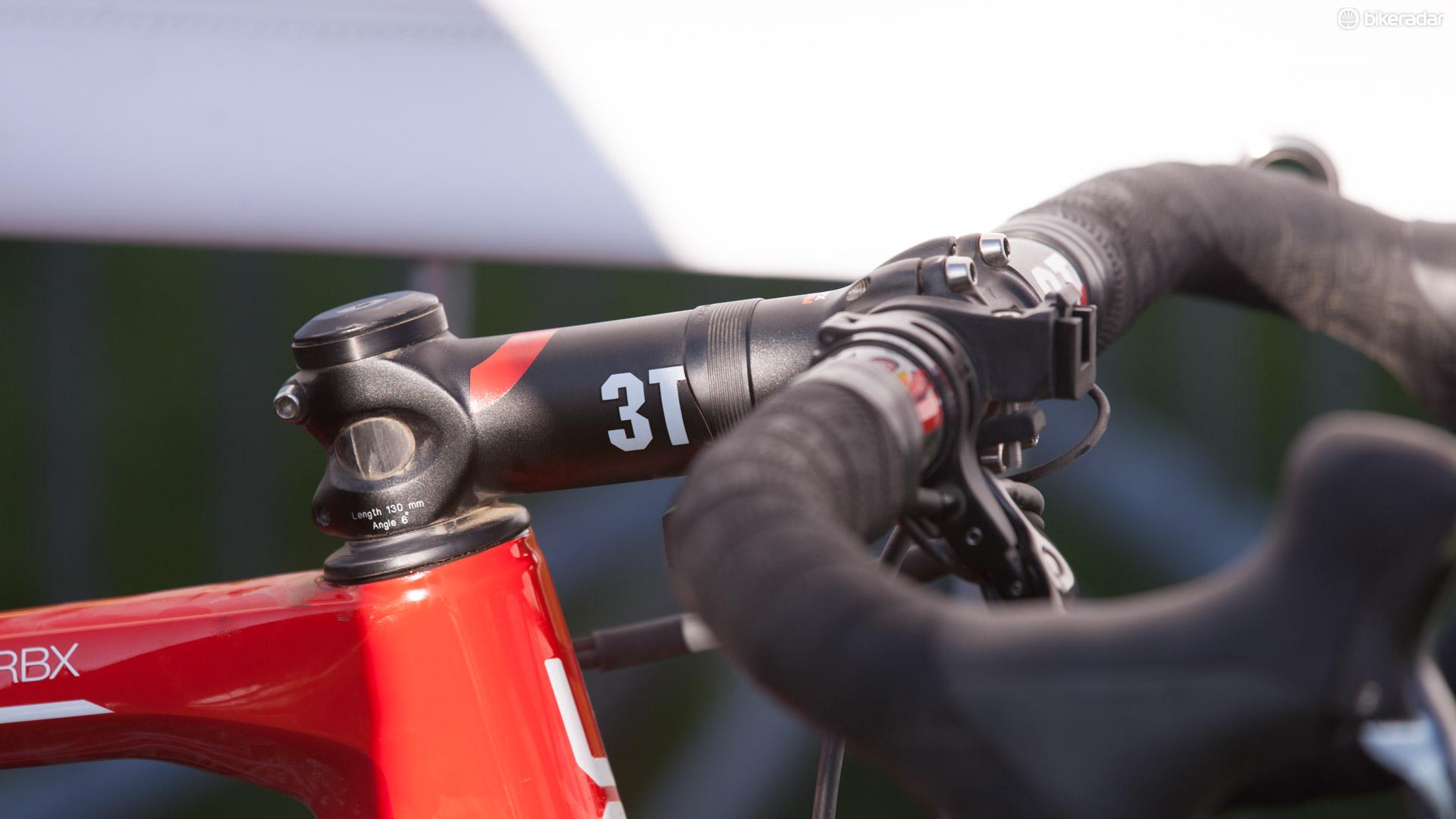
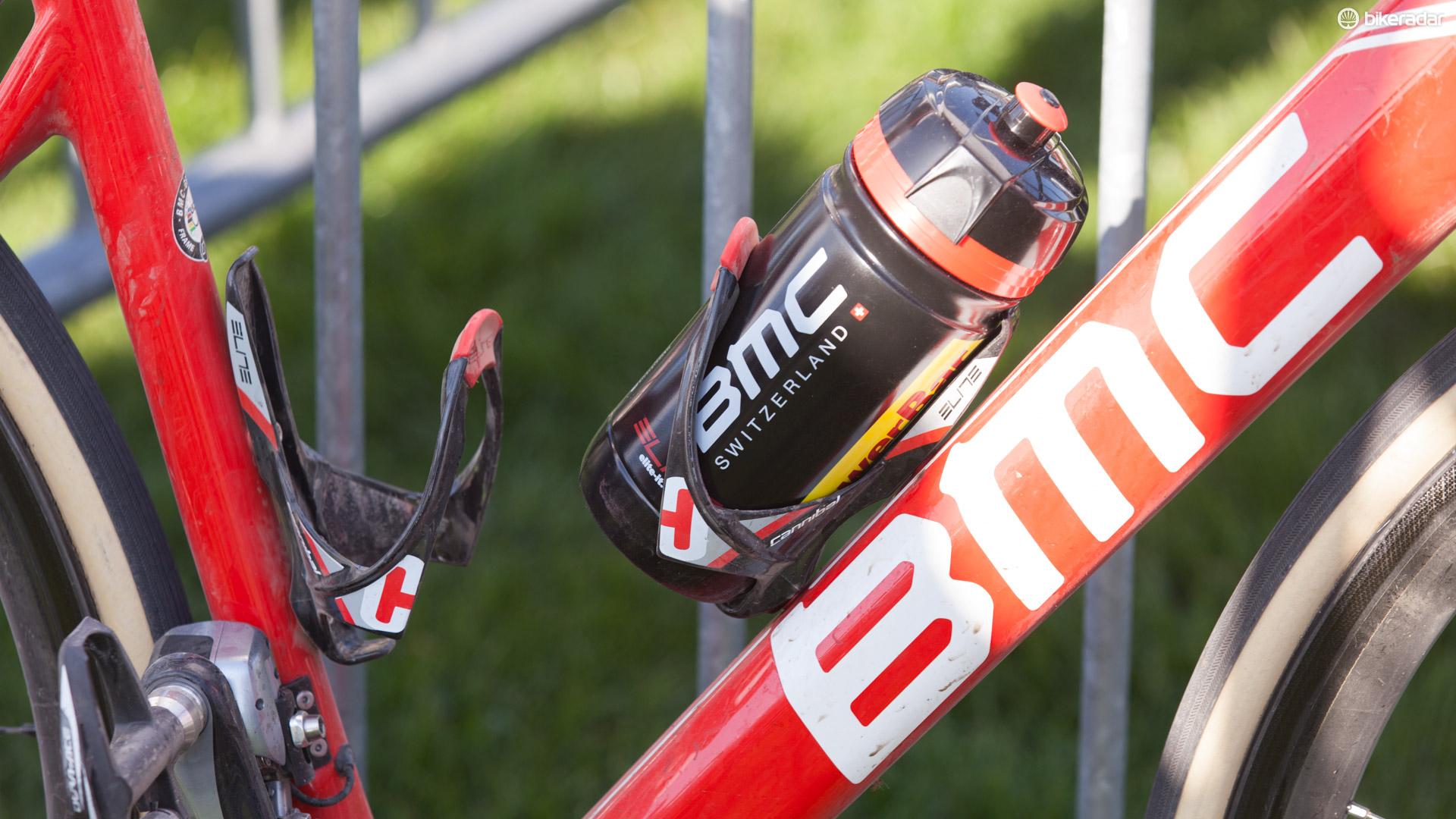
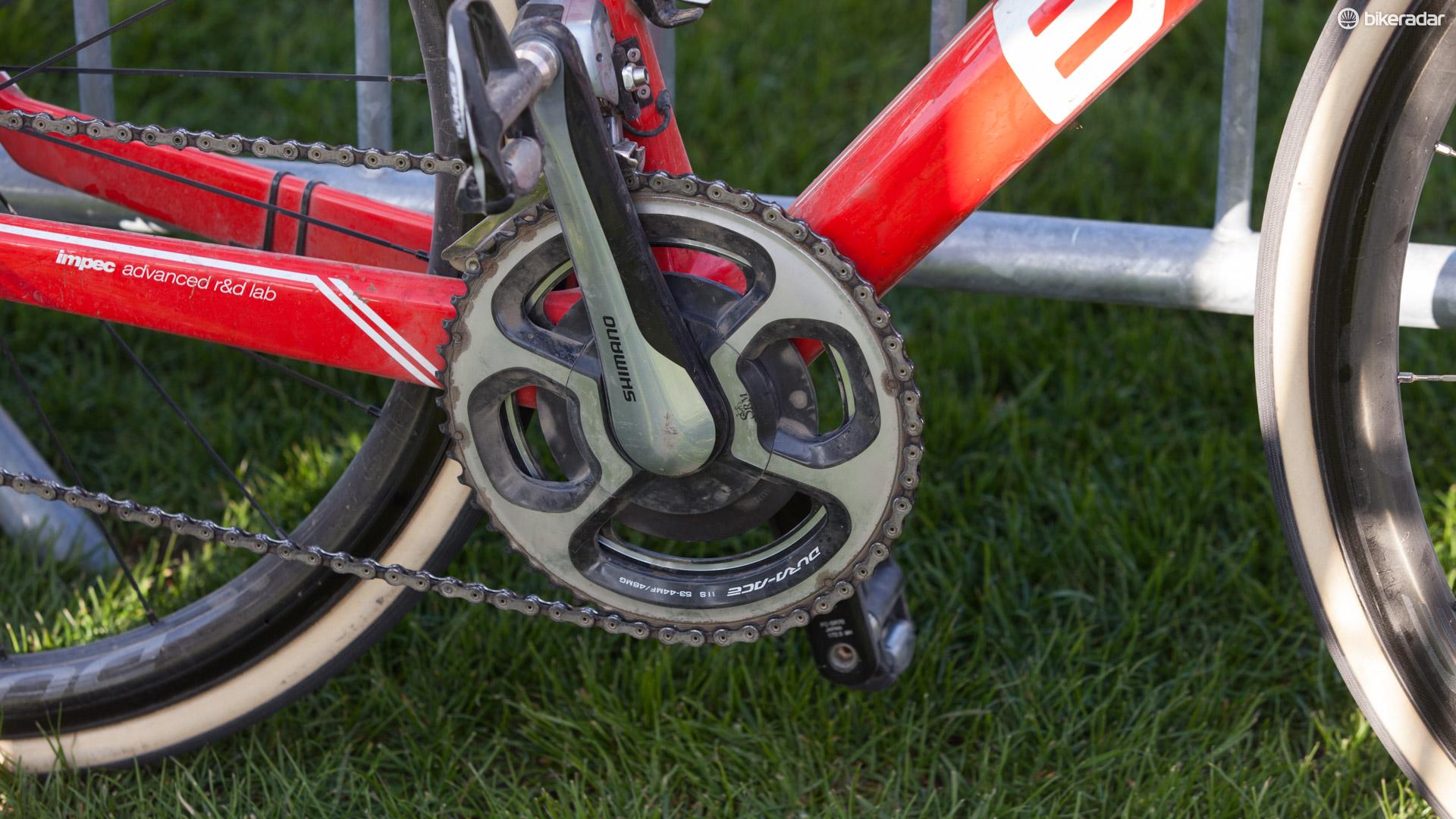
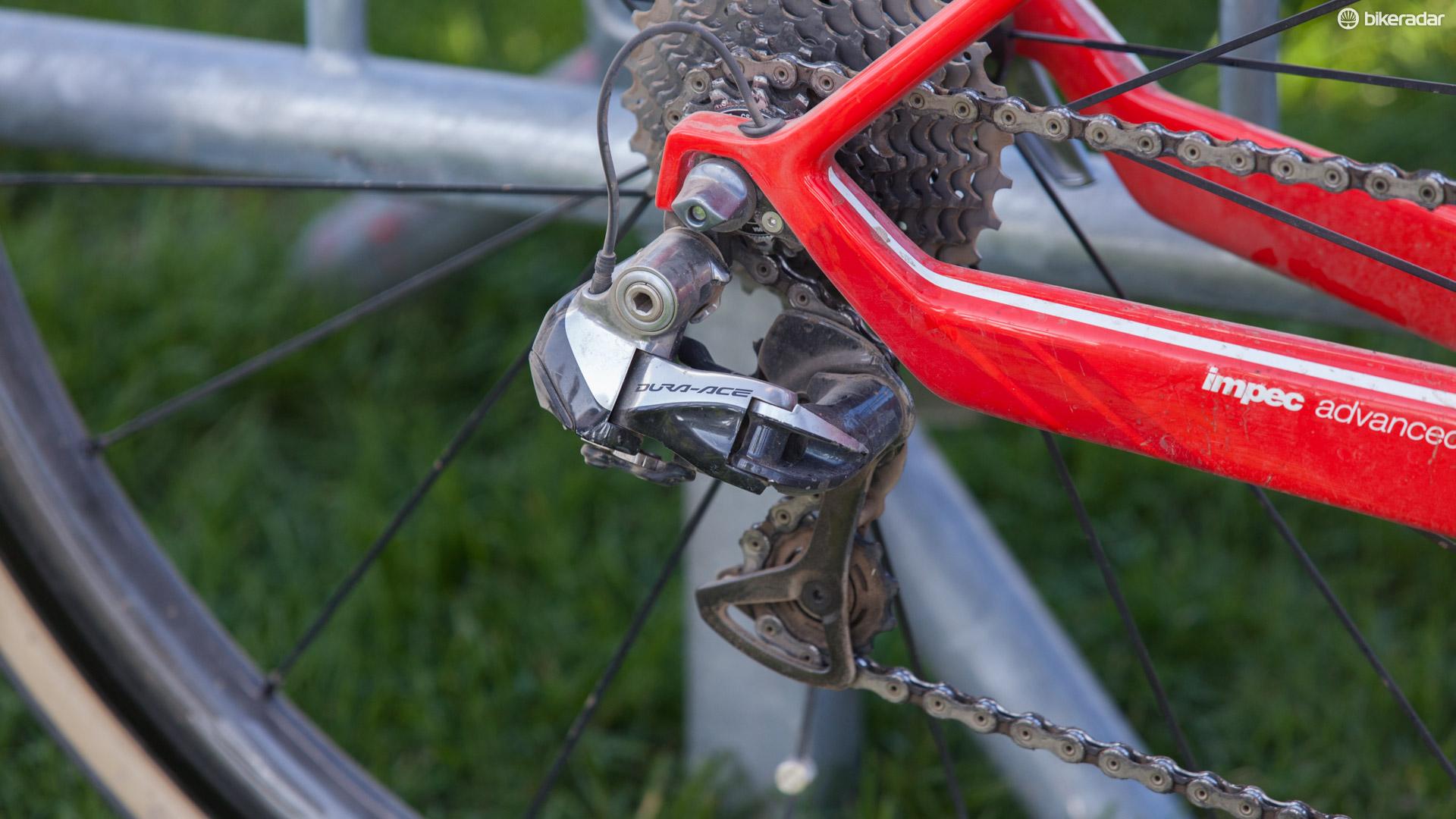
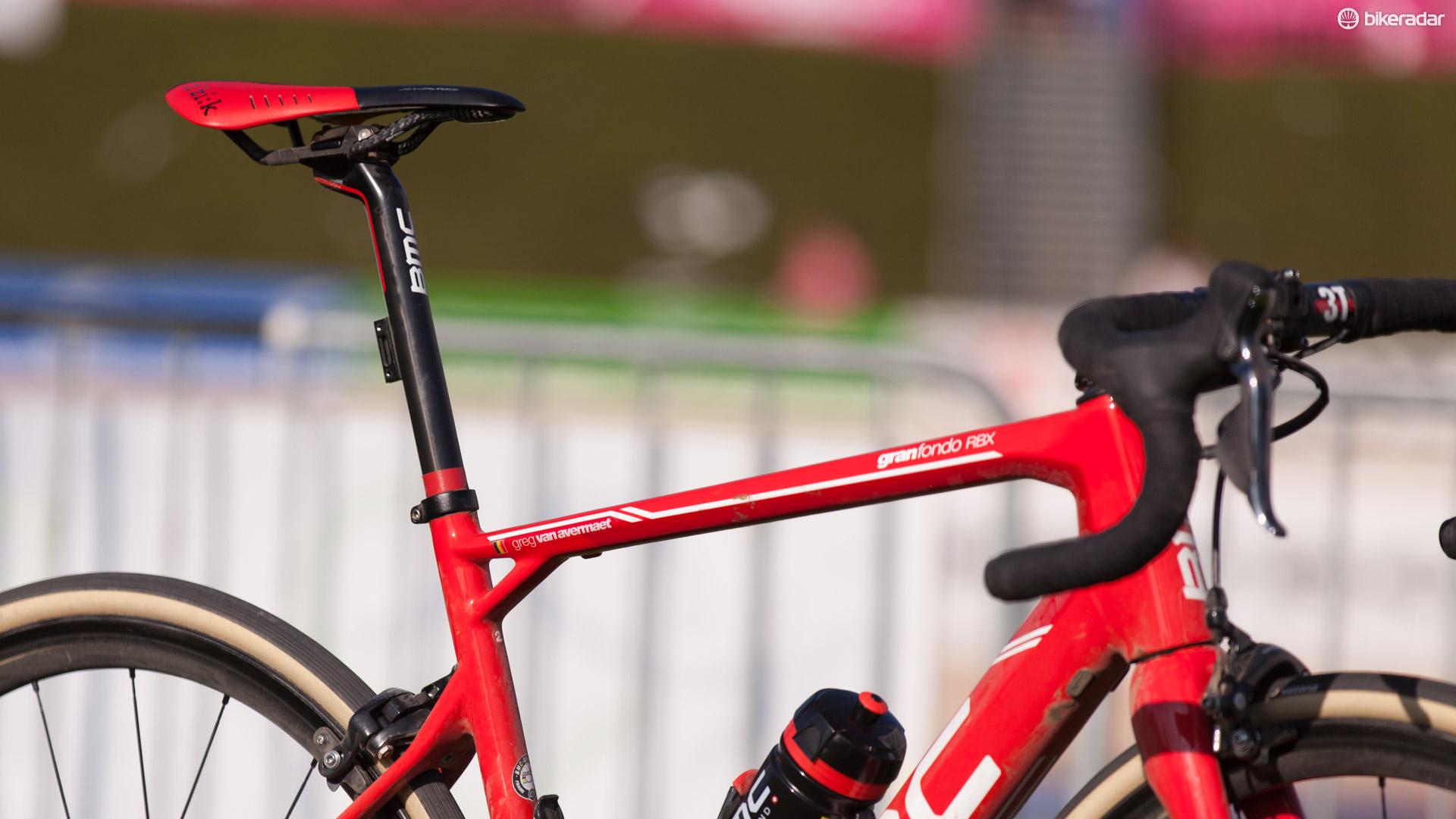
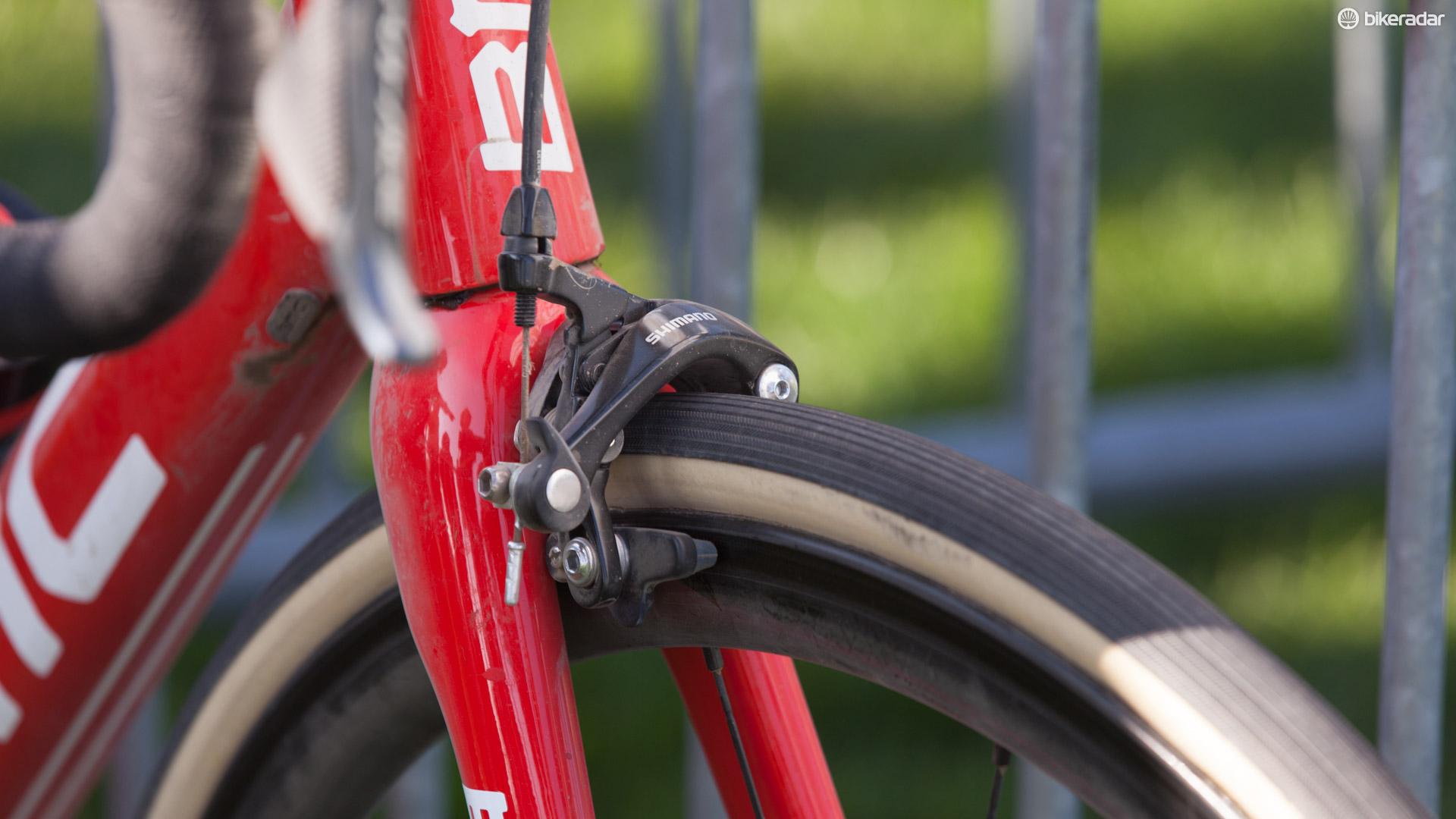
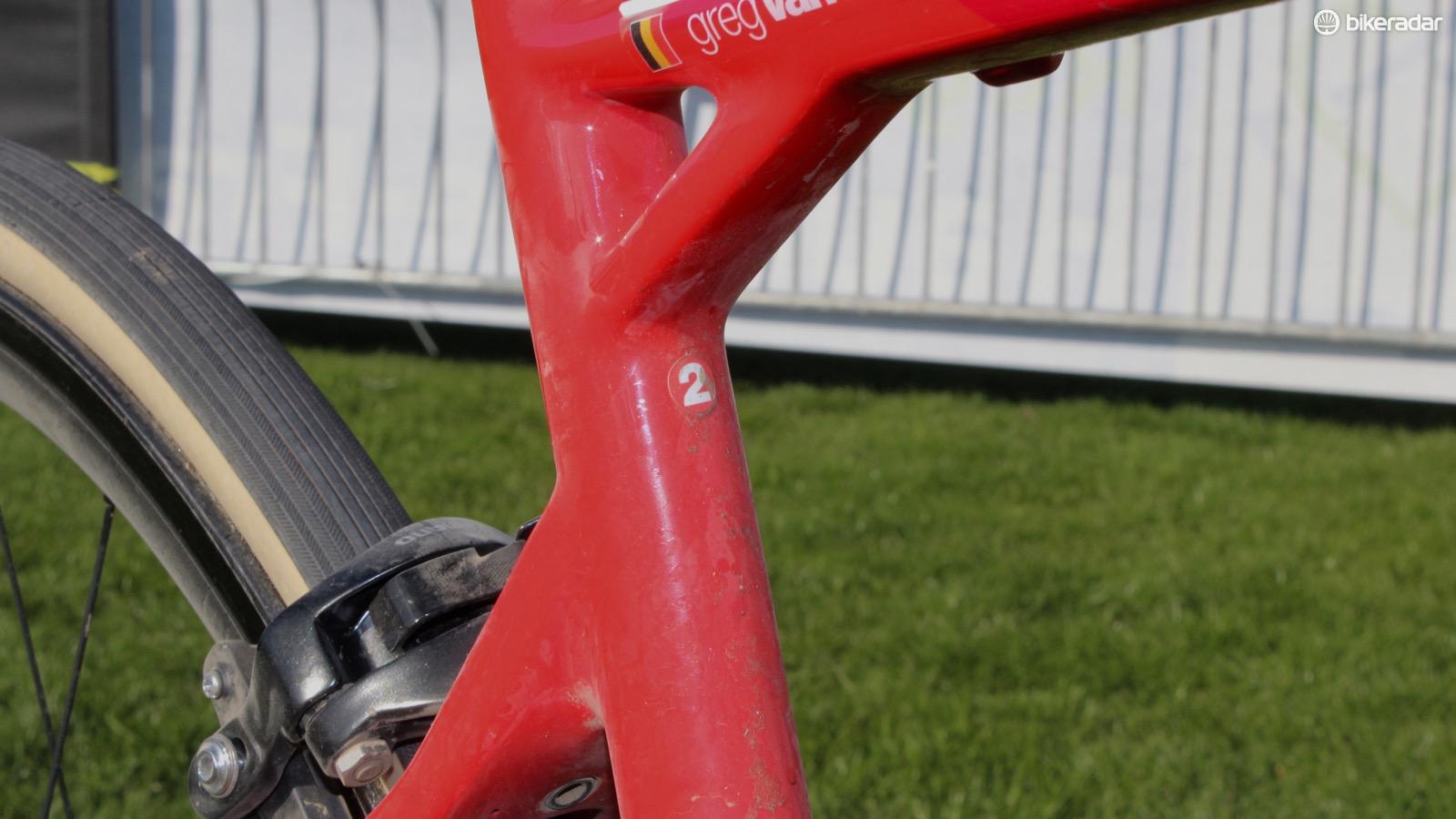
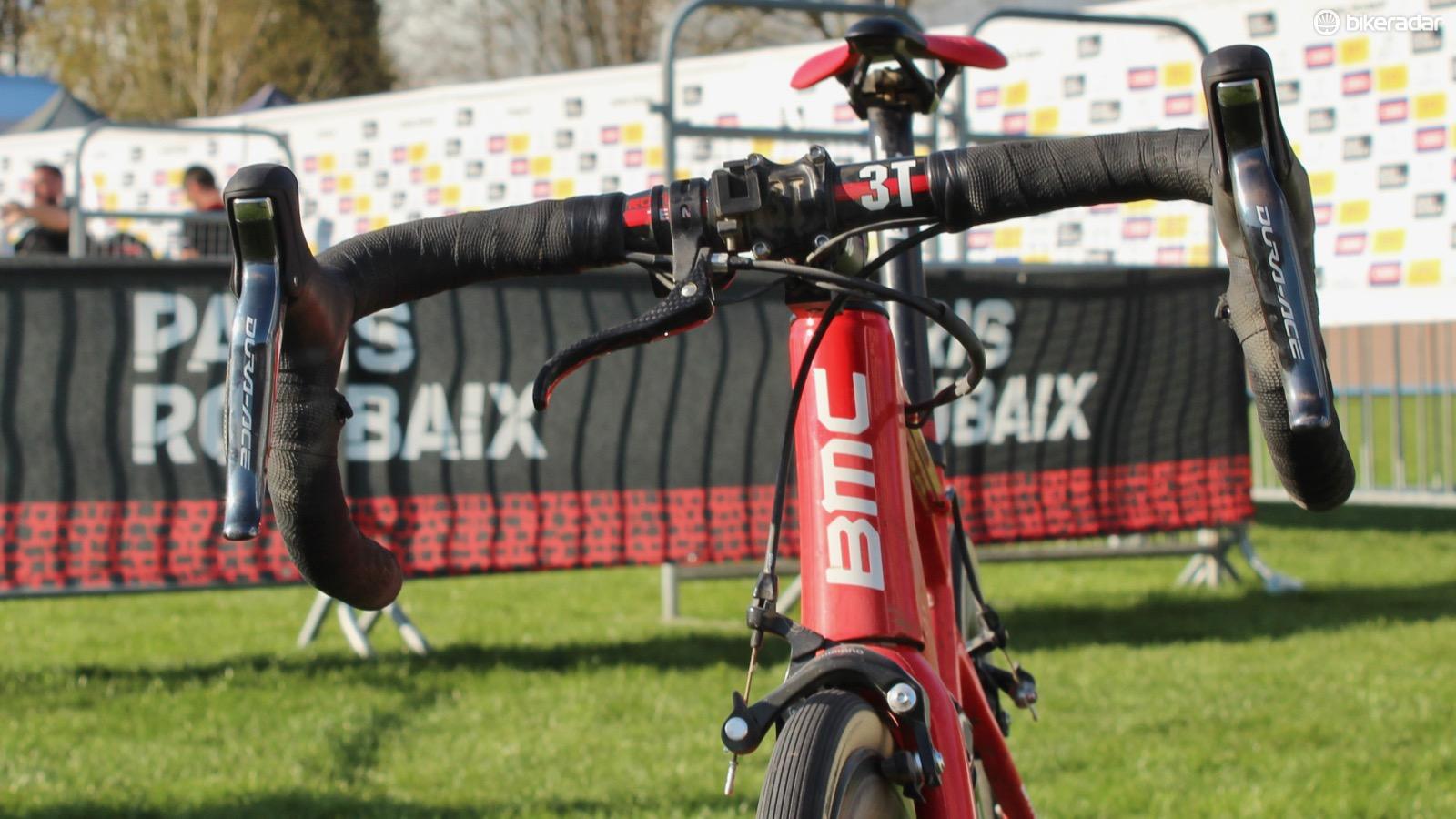
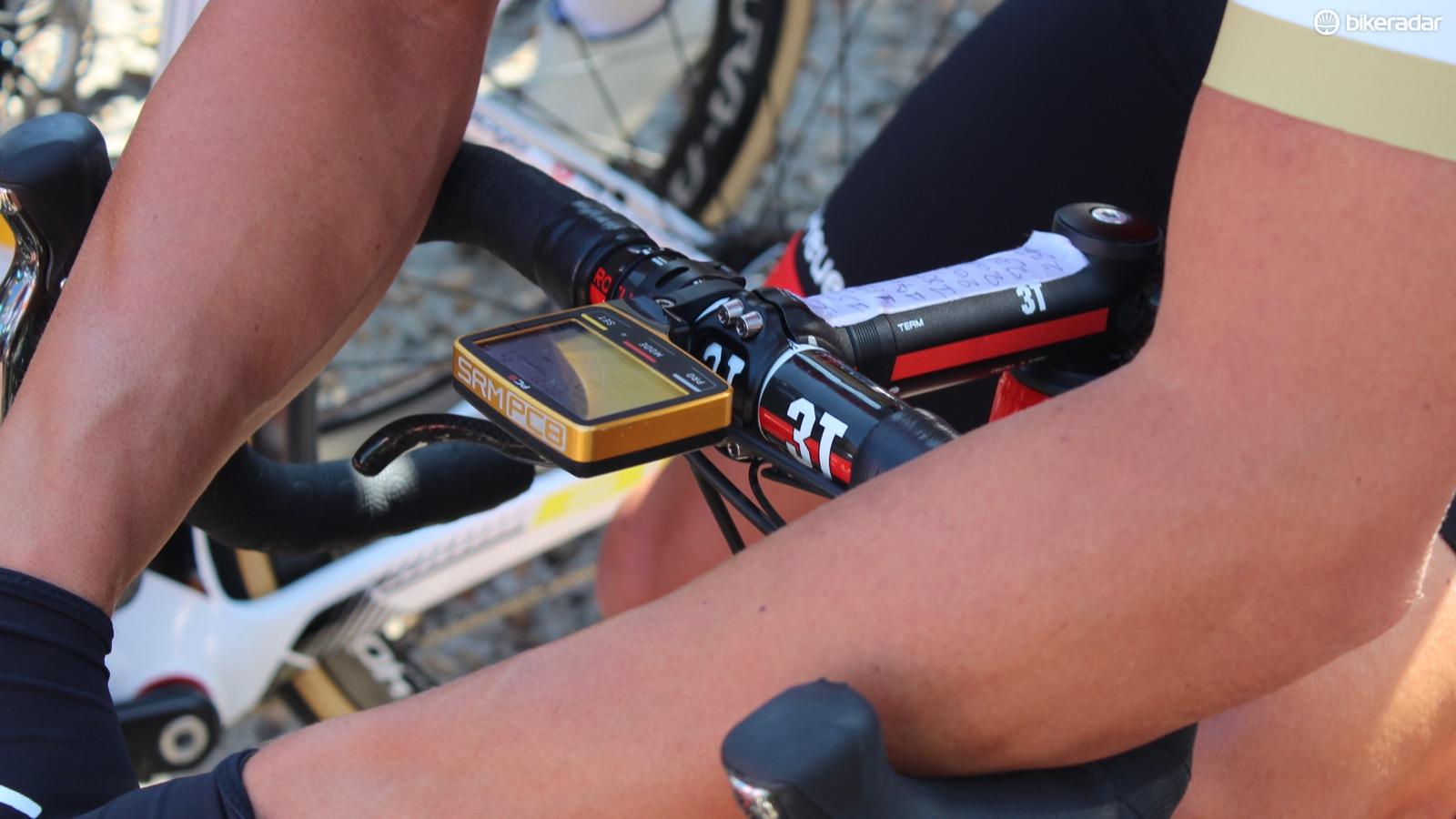
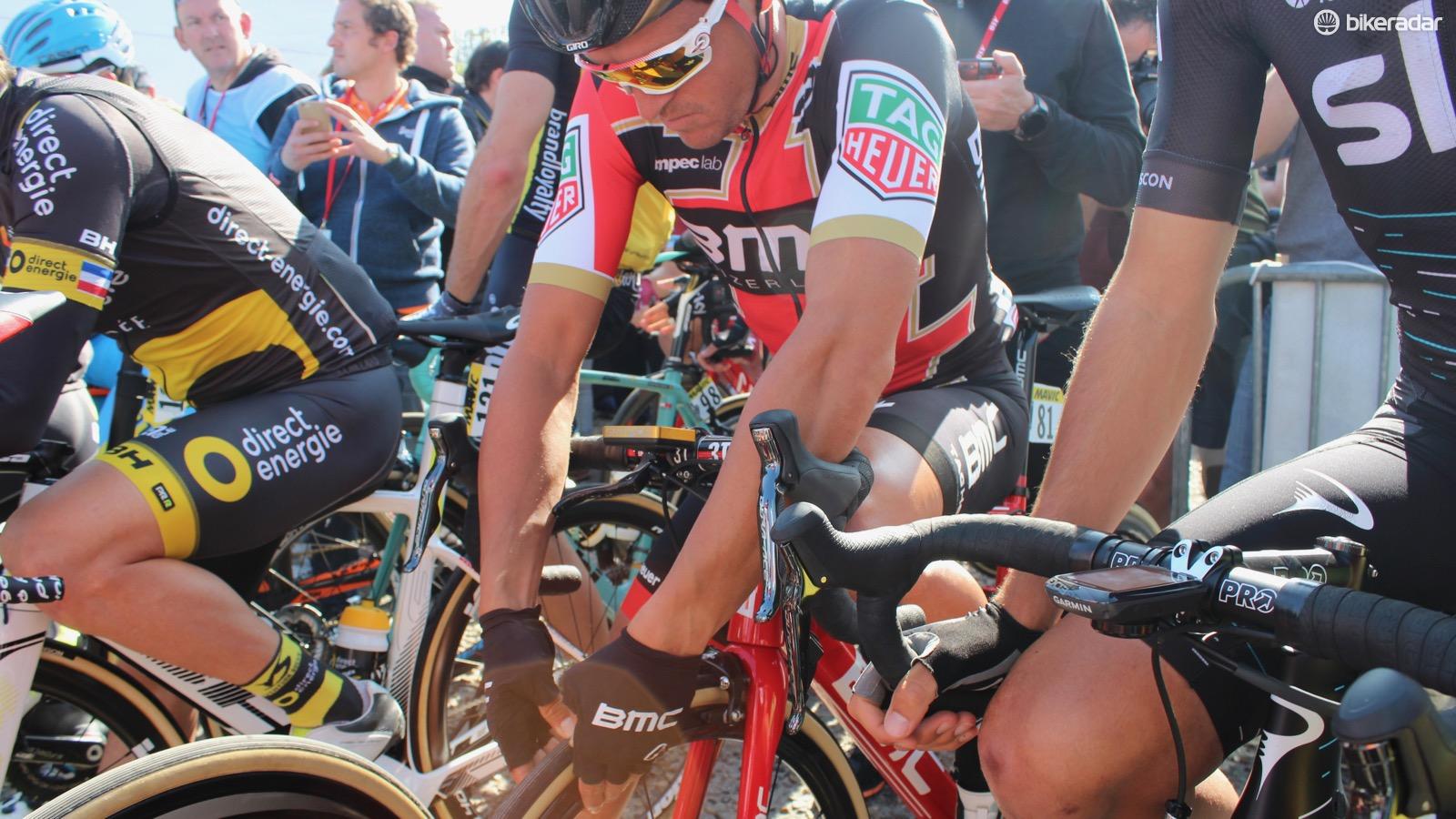
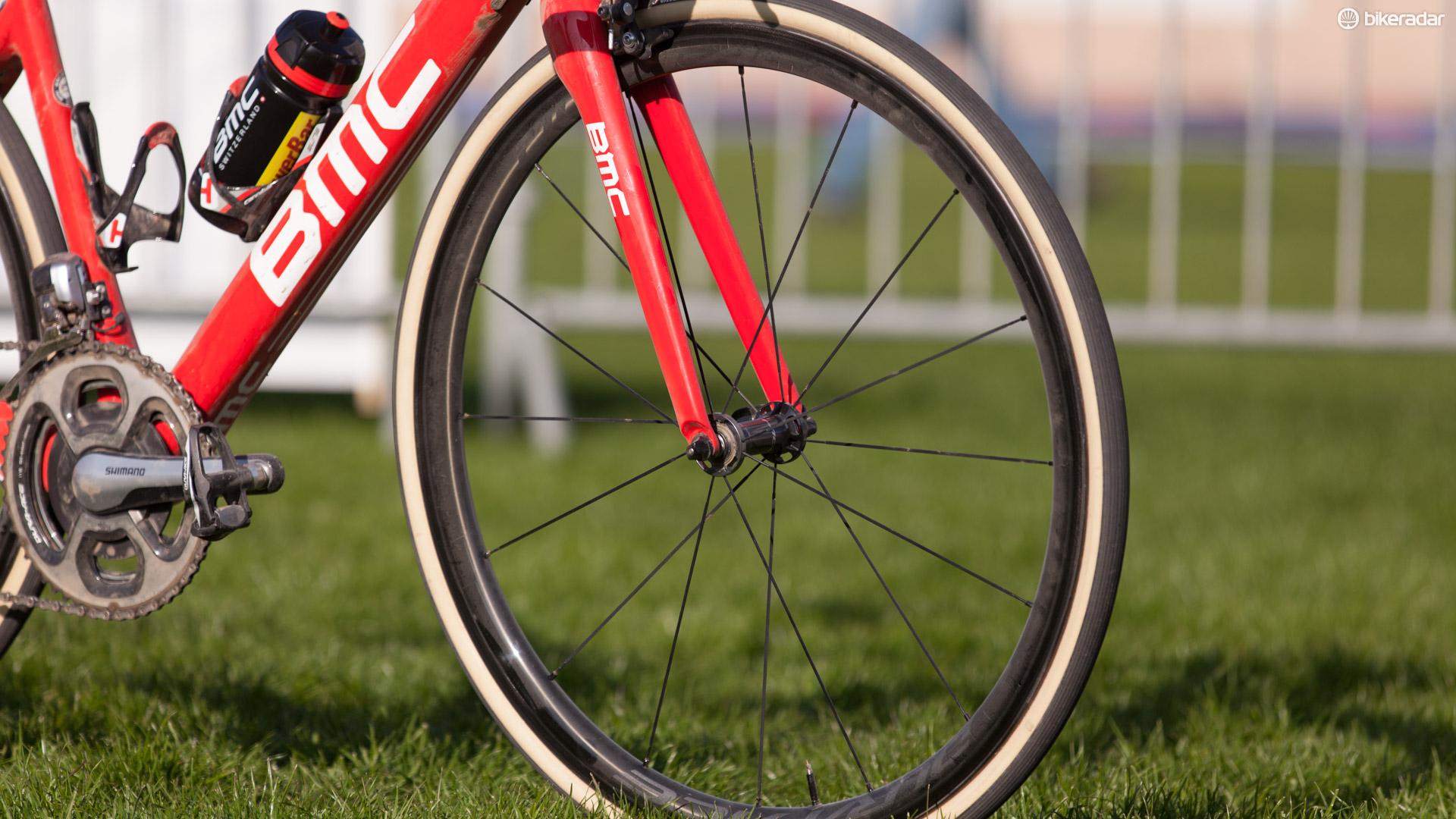
This article first appeared on Bikeradar
As the announcer’s voice boomed over the loudspeaker in Compiegne, calling the favorites to the front of the start of Paris-Roubaix, Greg Van Avermaet sat at the very back of the field, crouched over a bike that would soon be crashed on the cobblestones.
As riders packed inside the starting corral, former winners like Tom Boonen, John Degenkolb and Mathew Hayman were lauded before the crowd. The man who would win the day sat quietly just inside the end of the metal fencing, checking his air pressure. Next year, Van Avermaet will be called to the front.
Here is a look at the BMC Granfondo RBX that the Olympic road champion raced on for the second half of Roubaix after a bunch tumble removed his first one from contention.
More on this
- Massive Paris-Roubaix tech gallery
- Paris-Roubaix bikes: How they've evolved
- Peter Sagan's custom Specialized bike for Paris-Roubaix
- Boonen's goodbye bike: Pro-only front suspension for Paris-Roubaix
- Full Paris-Roubaix race coverage
Frameset born in 2015, build tweaked for 2017
The RBX version of BMC’s endurance Granfondo platform was launched at the 2015 Paris-Roubaix (where Avermaet took third on it). The concept was pretty simple: Paris-Roubaix all but demands fat tires, and bikes need to be able to accommodate them.
Most riders this year raced on either 28 or 30mm tubulars, with the odd exceptions like Ian Stannard who used 27mm tires — but on a hydraulic rear-suspension bike.
Get The Leadout Newsletter
The latest race content, interviews, features, reviews and expert buying guides, direct to your inbox!
Van Avermaet went with 30mm unmarked Vittoria tires, a common choice at Roubaix alongside Continental’s stalwart Competition and the boutique Dugast and FMB casings.
Since winning the road race at last summer's Rio Olympics, Van Avermaet trains and races with a gold SRM PC8 head unit. His first bike also had a simple piece of tape on the stem with key sectors noted in pen.
The only other noteworthy pieces of gear were the single bar-top brake lever, and the non-series 105-level Shimano direct-mount brake calipers that work well with that lever.
Many riders tackle the cobbles with their hands on the handlebar tops, and a few like to have a brake within reach. Notably, second-place finisher Zydnek Stybar of Quick Step had two such top-mount levers on his Specialized Roubaix.
More common at Roubaix are electronic shift buttons placed high on the bars near the stem. Stybar had these, too, but Van Avermaet just went with his typical placement of the sprint shifters on the inside of the bar drops, with the small one-way buttons peeking through a slit in the handlebar tape.
Van Avermaet's group was a mix of Shimano’s latest Dura-Ace Di2 group, the 9150, with the older 9050 derailleurs and SRM Shimano 11-speed power meter. SRM confirmed to BikeRadar that it will not be producing power meters with 9100 series cranks since Shimano jumped into the power-measuring game.
It appears that Van Avermaet didn’t grab his gold PC8 head unit off the first bike in the melee of the crash and subsequent bike switch.
Some armchair fans criticize pros for relying too much on power numbers for pacing, but the reality is that many riders and teams use the tools in racing to record the efforts for later analysis, especially in one-day events like Paris-Roubaix. In any event, Van Avermaet lead the day’s final break of three riders into the Roubaix velodrome for the finishing lap and a half, and came across the line in the same position aboard his BMC Granfondo RBX.